Breaking
- MENU
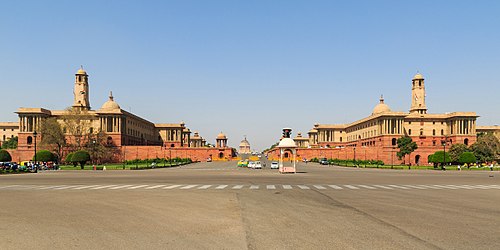
BILATERAL ISSUES
BAHRAIN
First consignment of GI tagged sweet dish Mihidana from West Bengal exported to Bahrain, New Delhi 05 October 2021.
In an effort to promote indigenous & Geographical Identification (GI) tagged products, first consignment of GI tagged sweet dish Mihidana sourced from Bardhaman, West Bengal has been exported to the Kingdom of Bahrain.
The consignment of unique sweet dish Mihidana was exported to Bahrain by APEDA registered M/S DM Enterprises, Kolkata and imported by Aljazira Group, Bahrain. The sweet dish from West Bengal is being displayed (also provided for tasting purpose) to consumers at Aljazira super stores in Bahrain. More consignments of the unique sweet dish would be exported to Bahrain during forthcoming Diwali festival.
Recently, to commemorate the historical legacy of a century old sweet delicacy & GI certified - Jaynagarer Moa, prepared from popped-rice ball & fresh date-palm jaggery, in Jaynagar, West Bengal, India Post in collaboration with APEDA released a specially designed envelope.
In January, 2021, a consignment of Jaynagar Moa was exported to the Kingdom of Bahrain, by APEDA registered M/s D M Enterprises, Kolkata. APEDA has been focusing on increasing lesser known, indigenous and GI tagged food products from the country.
In August, 2021, India Post released a special cover on West Bengal’s sweetmeats Mihidana and Sitabhog. West Bengal’s Bardhaman got the GI tag for the century-old sweetmeats in 2017.
A GI tag is a sign denoting a specific geographical origin and possess qualities or a reputation that are due to that origin. GI, a form of intellectual property right (IPR), is distinct from other forms of IPR, as it ascribes the exclusivity to the community in a defined geography, rather than to an individual, as is in the case of trademarks and patents.
A GI tag can be issued for agricultural, natural or manufactured goods that have a unique quality, reputation or other characteristics attributable to its geographical origin. Darjeeling tea, Basmati rice, Kanchipuram Silk, Mysore Silk, Hyderabadi haleem, Nagaland chilli products, etc, sold with the GI tag have premium pricing.
APEDA undertakes market promotion activities for export of food products, market intelligence for making informed decisions, international exposure, skill development, capacity building and high-quality packaging.
APEDA has been carrying out promotional activities to bring unique and GI certified products to the agricultural and processed food products export map of India. APEDA provides assistance to set up pack houses across States which would fulfil the mandatory requirement or infrastructure for export of fresh fruits and vegetables to the international market. Source: Press Information Bureau (PIB).
2nd meeting of Joint Steering Committee (JSC) between India and Kingdom of Bahrain, Manama, 7 October 2021.
The 2nd meeting of Joint Steering Committee (JSC) between India and Kingdom of Bahrain was held virtually on 07 October 2021. The Indian delegation was led by Mr. Sunil Kumar Barnwal, Joint Secretary, Internal Security Division, Ministry of Home Affairs; while the Bahraini delegation led by H.E. Major-General Tariq Al Hassan, Chief of Public Security, Bahrain.
The meeting discussed matters pertaining to Security Cooperation between India and Kingdom of Bahrain including in sectors of cyber security and counter terrorism, among others. Both sides recalled the deep rooted historic bilateral ties and noted with satisfaction the continued close and multifaceted cooperation between the two countries. Indian side expressed appreciation and thanked the Government of Kingdom of Bahrain for providing support for welfare of the vast Indian community in Bahrain, particularly during the difficult times of COVID- 19 pandemic. Both sides agreed to hold the next meeting of the JSC at the earliest.
JSC was set up under the Agreement between India and Kingdom of Bahrain for Cooperation in Combating International Terrorism, Transnational Organised Crime and Trafficking in Illicit Drugs, Narcotic and Psychotropic Substances and Precursors Chemicals signed in December 2015. The 1st meeting of JSC was held in Bahrain during the visit of the then Home Minister of India in October 2016. Source: Embassy of India, Manama.
ISRAEL
15th India-Israel Joint Working Group meeting in Tel Aviv, New Delhi, 29 October 2021.
India-Israel Joint Working Group (JWG) on Bilateral Defence Cooperation has agreed to form a Task Force to formulate a comprehensive Ten-Year Roadmap to identify new areas of cooperation.
This was decided at the 15th JWG meeting held on October 27, 2021 in Tel Aviv, Israel.
The meeting was co-chaired by Defence Secretary Dr Ajay Kumar and the Director General of the Israel’s Ministry of Defence, Maj Gen (Retd) Amir Eshel.
The JWG is the apex body between the Ministry of Defence of India and Israel’s Ministry of Defence to comprehensively review and guide all aspects of Bilateral Defence Cooperation.
The two sides reviewed the progress made in Military-to-Military engagements including exercises and industry cooperation. The Co-chairs were also appraised on the progress made by the Sub Working Groups (SWG) on Defence Procurement & Production and Research & Development.
It was also decided to form a SWG on Defence Industry Cooperation and in this regard a Terms of Reference was signed between the two sides. The formation of this SWG would enable efficient utilisation of bilateral resources, effective flow of technologies and sharing industrial capabilities. It was also decided to schedule the Service level Staff talks in a specific time frame.
It was agreed to hold the next JWG in India on mutually convenient dates. Source: Press Information Bureau (PIB).
KUWAIT
Destination India: Ambassador’s Interaction with Stakeholders in Tourism Sector, Kuwait, 11 October 2021.
Embassy of India in Kuwait organized Consultations with Stakeholders in Tourism Sector in Kuwait on 11 October 2021.
Ambassador of India to Kuwait His Excellency Shri Sibi George addressed the tour operators, agents and travel planners in Kuwait and briefed them about the opening up of tourist visas to India. He highlighted the potential of India as a post-COVID-19 tourism destination for any Kuwaiti traveller seeking nature, adventure, culture or wellness destination. He invited Kuwaiti nationals to visit India. Short video documentaries on diverse tourism destinations in India, such as Jammu & Kashmir, Himachal Pradesh, Goa and Kerala etc. were presented during the event.
India has announced opening of tourism visa for those foreigners travelling on charter flights to India from 15 October 2021. Tourist visa for passengers travelling on other flights will also be issued beginning 15 November 2021.
During the year 2019, 10.93 million foreign tourists visited India, which saw a growth of 3.5% over previous year. Total international tourist arrivals during the year 2019 were 17.91 million. Once again, India is now ready to welcome tourists from all over the world, after the break induced by COVID-19 in the last year and a half.
The event witnessed participation of all major tour operators in Kuwait. Source: Embassy of India, Kuwait.
LEBANON
Business Seminar “Exploring Opportunities and Diversifying Business” on October 28, 2021, Beirut. 29 October 2021.
A Business Seminar was organized by the Embassy & the Aley Commercial Association on October 28, 2021 to explore new areas of business between India & Lebanon. Association President Mr Samir Shehayeb & Vice President Eng Ghassan Saab shared useful insights and ideas.
Amb Dr. Suhel Ajaz Khan gave an overview of the Indian economy & ease of doing business. He also listed the sectors where there is scope of enhancing Indian exports to Lebanon. Businessmen from machinery/food/solar energy/construction/ textile & chemicals sectors attended the Seminar. Source: Embassy of India, Beirut
Ambassador's meeting with Health Minister H.E. Mr. Firass Abiad on October 6, 2021, Beirut, 7 October 2021.
Ambassador Dr. Suhel Ajaz Khan called on the new Lebanese Health Minister H.E. Mr. Firass Abiad on October 6, 2021. They had cordial discussions on many issues including Pharma exports from India to Lebanon, mutual recognition of Covid-19 vaccine certificates & possibility of co-op in the field of Ayurveda. Source: Embassy of India, Beirut.
Courtesy call on Prime Minister H.E. Najib Mikati on October 12, 2021, Beirut, 13 October 2021.
Ambassador Dr Suhel Ajaz Khan paid a courtesy call on Prime Minister H.E. Najib Mikati on October 12, 2021 and discussed various dimensions of India - Lebanon bilateral relations. Source: Embassy of India, Beirut.
UAE
Prime Minister Narendra Modi’s address to the gathering at the India Pavilion at Expo 2020 Dubai, New Delhi, 01 October 2021
Namaste!
Welcome to the India Pavilion at Expo 2020 Dubai. This is a historic Expo. It is the first one to be held in the Middle East, Africa and South Asia region. India is participating with one of the largest pavilions in the Expo. I am sure the Expo will go a long way in further building our deep and historical relations with UAE, and with Dubai. Let me begin by conveying greetings on behalf of Government and people of India to His Highness Sheikh Khalifa bin Zayed bin Al Nahyan, President of UAE and Ruler of Abu Dhabi.
I would also like to convey hearty congratulations to His Highness Sheikh Mohammed bin Rashid Al Maktoum, Prime Minister and Vice President of UAE and the Ruler of Dubai. Let me also express my best wishes to my brother, His Highness Sheikh Mohamed bin Zayed Al Nahyan, Crown Prince of Abu Dhabi. He has been instrumental in the progress we have achieved in our strategic partnership. I look forward to continuing our work for the progress and prosperity of both our countries.
Friends,
The main theme of Expo 2020 is: Connecting Minds, Creating the Future. The spirit of this theme is also seen in India's efforts as we move ahead to create a New India. I would also like to congratulate the Government of UAE for organising the Expo 2020 in a splendid way. This expo is also testimony to the resilience of mankind against the once in a century pandemic.
Friends,
The theme of India's pavilion is: Openness, Opportunity and Growth. Today's India is one of the most open countries in the world. Open to learning, open to perspectives open to innovation open to investment. That is why I invite you to come and invest in our nation. Today, India is a land of opportunities. Be it in the field of arts or commerce, industry or academia There is: Opportunity to discover, opportunity to partner, opportunity to progress. Come to India and explore these opportunities. India also offers you maximum growth. Growth in scale, growth in ambition, growth in results. Come to India and be a part of our growth story.
Friends,
India is famous for its vibrancy and diversity. We have different cultures, languages, cuisines, forms of art, music and dance. This diversity is reflected in our pavilion. Similarly, India is a power house of talent Our country is making many advances in the world of technology, research and innovation Our economic growth is powered by a combination of legacy industries and start-ups. India's pavilion will showcase the best of India across these multiple areas. It will also showcase investment opportunities in multiple sectors like health, textiles, infrastructure, services and more. Over the last seven years, the Government of India has undertaken several reforms to boost economic growth. We will keep doing more to continue this trend.
Friends,
As India celebrates 75 Years of Independence in the form of Amrit Mahotsav, we invite everyone to visit the India Pavilion and capitalise on the opportunities in the resurgent New India. Let us make the world a much better place to live with Sabka Saaath, Sabka Vikas, Sabka Vishwas, Sabka Prayas.
Thank you.
Thank you very much. Source: Press Information Bureau (PIB)
9th Meeting of the India-UAE High Level Joint Task Force on Investments, New Delhi, 02 October 2021
His Highness Sheikh Hamed bin Zayed Al Nahyan, Member of the Executive Council of the Emirate of Abu Dhabi, and Shri Piyush Goyal, Minister of Commerce & Industry, Consumer Affairs, Food & Public Distribution, and Textiles, Government of India, co-chaired the ninth meeting of the UAE-India High Level Joint Task Force on Investments (‘the Joint Task Force’) today in Dubai. Senior officials representing relevant government authorities and various investment entities from both countries took part in the meeting.
The Joint Task Force was established in 2013 as a key forum for promoting economic ties between the UAE and India, which were further strengthened by the signing of the Comprehensive Strategic Partnership Agreement between the two countries in January 2017 by Indian Prime Minister Shri Narendra Modi and His Highness Sheikh Mohamed bin Zayed Al Nahyan, Crown Prince of Abu Dhabi and Deputy Supreme Commander of the UAE Armed Forces.
At this ninth meeting of the Joint Task Force, the two sides noted the impact of the COVID-19 pandemic on global trade and investment and reiterated the importance of continuing to strengthen the deep economic ties between the two countries. Both sides recognised the collaboration between India and UAE during this difficult period and appreciated the leadership provided by the two countries in their regions to confront the pandemic.
The meeting reviewed the positive outcomes achieved through the work of the Joint Task Force to date, and the two sides agreed to continue exploring ways to facilitate investment in areas of mutual interest with the potential for economic growth.
The progress of ongoing discussions for the India-UAE Comprehensive Economic Partnership Agreement, which will be a significant and wide-reaching step in promoting trade and investment between the two countries, was reviewed during the meeting. In this regard, both sides appreciated the efforts made to expedite discussions towards a well-balanced agreement that will considerably deepen bilateral economic ties and benefit the economies of both countries.
Participants also considered ongoing efforts to amend the UAE and India’s longstanding Bilateral Investment Treaty and noted the importance of concluding the negotiation process as soon as possible.
At the meeting, discussions were also held on exploring mutually beneficial methods and incentives to facilitate further investment from UAE sovereign investment entities in key priority sectors in India. The positive steps made by the Indian government in this context were noted and both sides agreed to continue to focus on ways of providing tax incentives to certain UAE sovereign investment entities.
The importance of active involvement from the UAE Special Desk within Invest India, the National Investment Promotion Agency of India, in expediting the resolution of both legacy issues and current difficulties experienced by UAE companies and banks in India was discussed. The Indian side also highlighted some long-standing issues faced by Indian investors in the UAE. Both sides agreed to continue coordination and cooperation at the highest official levels for the early resolution of these issues.
Given the importance of air transport in facilitating bilateral ties and people-to-people connections, both sides agreed that their respective civil aviation authorities should continue to work together on a priority basis, for their mutual benefit, to ensure the speedy normalisation of air transport operations between the two countries.
Commenting on the ninth meeting of the Joint Task Force, His Highness Sheikh Hamed bin Zayed Al Nahyan, Co-Chair of the Joint Task Force and Member of the Executive Council of the Emirate of Abu Dhabi, said:
“India and the UAE share a broad and deep strategic partnership, and this has helped bilateral economic ties continue to strengthen despite the challenges of the COVID-19 pandemic. The Joint Task Force offers an important platform for dialogue between our two countries, raising new opportunities for trade and investment, and removing bottlenecks to further cooperation. Looking ahead, India and the UAE share ambitious goals to expand trade and investment activities between our countries, and the Joint Task Force will continue to play an important role in achieving these objectives.”
Shri Piyush Goyal, Co-Chair of the Joint Task Force and Minister of Commerce & Industry, Consumer Affairs, Food & Public Distribution, and Textiles, Government of India, said:
“India and UAE have longstanding ties which have become stronger in the recent times and our continued engagement even during the pandemic reflects the priority this partnership holds for both our nations. Our leadership accords a special place to our relationship with the UAE and our bilateral forums like the Joint Task Force provide effective mechanisms to build on our long-standing friendship. Given the strong growth prospects of the Indian economy, we look forward to increased investment from the UAE in diverse sectors of India. We are sure that the world will continue to witness greater achievements in the India-UAE partnership in the future.” Source: Press Information Bureau (PIB).
Shri Piyush Goyal calls upon the Indian diaspora in UAE to encourage others to Invest in India, New Delhi, 03 October 2021.
Union Minister of Commerce & Industry, Consumer Affairs, Food & Public Distribution and Textiles, Shri Piyush Goyal has called upon the NRIs and Indian diaspora to invest in India unhesitatingly. Addressing the Indian People’s Forum (IPF) Business Conclave in Dubai today, Shri Goyal said this is the right time for India’s vast expatriate community to invest in their motherland. There is a great opportunity in extraordinary growth in India.
“Under Prime Minister Modi we are seeing rise in economic indicators despite the pandemic. Merchandise exports in Apr-Sep’21 touched $197.11 bn, recording 23.8% growth over Apr-Sep’19. Manufacturing PMI average improved to 53.8 (Q2) from 51.5 (Q1) while GST collections have hit a 5-month high in September,” he said.
Shri Goyal said the Government has taken many steps to create conducive business environment.
“From red-tapism to laying the red carpet for businesses, India under Prime Minister Modi has come a long way. As a result, India climbed up in Ease of Doing Business ranking from 130 to 63 in just 5 years and also jumped to 46th spot on the Global Innovation Index (GII), a jump of 35 places in last 6 years. Steps in last 7 years helped us nurture world’s 3rd largest start-up ecosystem,” said Shri Goyal.
“In the 75 weeks of ‘Azadi Ka Amrit Mahotsav’, we aim at taking the number of unicorns to 75 in the country. Similarly, India received the highest ever FDI inflow of around $ 82 billion in 2020-21 (during peak of pandemic), up 10% over 2019-20 (pre-pandemic time). Total FDI inflow of US$ 22.5 bn during Q1 of current fiscal is 90% higher compared to US$ 11.8 bn during the corresponding period last year,” he added.
Shri Goyal said the visionary leadership of our Prime Minister has catapulted our nation to a higher pedestal in the international community.
“Our ancient wisdom Vasudhaiva Kutumbakam & Sarve Santu Niramaya inspired us to serve the world selflessly and we supplied medicines and vaccines to world,” he said, adding, “I urge you to spread this message and help strengthen our global ties.. Hope the Indian diaspora to contribute in the best possible manner to take Prime Minister Modiji’s great work forward & make the country ‘Vishwaguru’ again.”
Stating that India and the UAE are going to celebrate the 50th anniversary of establishment of diplomatic relationship next year, Shri Goyal said this is a good opportunity to take our ties to the next level.
“We are celebrating ‘Azadi Ka Amrut Mahotsav” to commemorate 75 years of Progressive India & to highlight its glorious history, culture & heritage. Coincidentally, UAE is also celebrating this year as the 'Year of 50' to commemorate the declaration of the Union in 1971. ‘Projects of the 50’ of UAE & Prime Minister’s vision of ‘Aatmanirbhar Bharat’ reflect the statesmanship of our leaders,” he said, adding, “India is focusing on fulfilling its aspirations in next 25 years to celebrate the Centenary of its Independence in a grand way, while UAE leadership is planning their journey for the next 50 years.”
Expressing delight at meeting the Indian community in Dubai, “the City of Gold”, Shri Goyal said, “It is because of you all Dubai is considered as an extended neighbourhood of India, - a 2nd home to our exporters and a prime destination for Indian tourists.”
Shri Goyal underlined that the 3.4 million strong Indian diaspora in the UAE acts as a bridge between the two countries.
“I commend the efforts of Indian People’s Forum (IPF) in connecting the people of Indian origin residing in the region & bringing them on a single platform. By spreading our culture, tradition & values on a far-off foreign land, you are not just NRIs but “cultural ambassadors” of our country,” he said.
Shri Goyal is in the UAE to inaugurate the India Pavilion at Dubai Expo. The official visit is being seen as major step towards boosting Indo - UAE Strategic Partnership and taking trade and investment between to unprecedented levels. The ongoing Expo is India’s window to the world, An opportunity to showcase India’s capability & potential. Source: Press Information Bureau (PIB).
Shri V. Muraleedharan, Minister of State for External Affairs, to participate in the Sixth Ministerial Consultations of Abu Dhabi Dialogue in Dubai (October 26-27, 2021), New Delhi, 25 October 2021.
The Minister of State for External Affairs, Shri V. Muraleedharan would be leading the Indian delegation to the Sixth Ministerial Consultations of Abu Dhabi Dialogue (ADD) to be held in Dubai from 26 to 27 October, 2021.
ADD is a regional, voluntary and non-binding Consultative Process between Asian countries of labour origin and destination, which serves as a platform to facilitate regional cooperation on contractual labour mobility, sharing of best experiences and learning from one another’s experience.
During the visit, MOS will have bilateral meetings with other Ministers. MOS will also visit Dubai Expo 2020. Source: Ministry of External Affairs (MEA).
PERMANENT MISSION OF INDIA TO THE UN
UNSC briefing on Syria (Chemical Weapons), India Statement By Ambassador R. Ravindra Deputy Permanent Representative, New York, 4 October 2021
Mr. President, let me begin by joining others, in thanking Under Secretary General and High Representative for Disarmament Affairs, Ms. Izumi Nakamitsu for her update. I also welcome the presence of Representatives of Syria and Turkey in today’s meeting.
2. We have taken note of the contents of the latest 96th monthly report by DG-OPCW. We also note the submission by Syrian Arab Republic on 16 September of its 95th monthly report detailing activities undertaken to implement its obligations under the CWC.
3. It is important that the visit of Declaration Assessment Team (DAT) to Syria, takes place early. We have taken note of the upcoming visit of a Syrian delegation to The Hague to engage with the Declaration Assessment Team. We hope both OPCW and Syria will resolve relevant issues expeditiously.
4. The CWC is a unique, non-discriminatory disarmament instrument, for elimination of an entire category of weapons of mass destruction. We attach high importance to the CWC, and stand for its full, effective and non-discriminatory implementation. We support the collective efforts by all to ensure that the credibility and integrity of this Convention is maintained to the fullest.
5. India is against the use of chemical weapons, by anybody, anywhere, at any time and under any circumstances. India has consistently maintained that any investigation into the use of chemical weapons must be impartial, credible, and objective, following scrupulously the provisions and procedure embedded in the Convention, and in conformity with the delicate balance of power and responsibility enshrined under it to establish facts and reach evidence-based conclusions.
6. As a member of this Council, India has been repeatedly cautioning against the possibility of terrorist entities and individuals gaining access to chemical weapons including in the region. The latest report of UNITAD also referred to the repeated deployments of chemical weapons by ISIL against civilian populations between 2014 and 2016. This is a cause for serious concern and needs to be acted upon.
Lastly, Mr. President, we believe that technical issues such as Syria, chemical weapons file, need to be dealt in an objective manner. Progress on these matters could potentially help the political track positively.
I thank you, Mr. President. Source: Permanent Mission of India to the UN
UNSC Briefing on Yemen, Statement by Ambassador T.S. Tirumurti, Permanent Representative of India to the United Nations, New York, 14 October 2021.
Thank you, Madam President. I thank Special Envoy Hans Grundberg and Assistant-Secretary General Ramesh Rajasingham and Ms. Maysaa Shujaa Aldeen from Sana’a Centre for their briefings. I welcome the presence of the Permanent Representative of Yemen in our midst.
We are deeply concerned by the mounting death toll due to the prolonged fighting between the government forces and Ansarallah in Marib and other parts of Yemen. The ongoing hostilities and the cycle of violence further jeopardize the chances of a ceasefire.
Putting an end to the current hostilities in Marib as well as in other places in Yemen through a comprehensive ceasefire should be the immediate priority of the international community. In this regard, we appreciate the efforts of Special Envoy Grundberg in engaging with all the parties to the conflict towards a nationwide ceasefire, and to resume negotiations to achieve an inclusive political solution that meets the aspirations of all Yemenis.
Millions of Yemenis are bearing the brunt of the protracted conflict. The unprecedented humanitarian crisis has been compounded by the precarious economic situation. The declining currency exchange-rate has further worsened the situation by inflating the prices of food, fuel and other commodities. I underscore the urgent need to address economic consequences of the conflict, since this could exacerbate the misery of the people.
We are also concerned by the restrictions and impediments to the movement of humanitarian aid and other essential commodities into and within Yemen. I call on all parties to lift such restrictions to ensure that humanitarian aid reaches all Yemenis. Otherwise, the suffering of the people of Yemen, especially that of women and children will worsen.
Financing for humanitarian operations is another area that needs the attention of the international community. We hope that the additional pledges made during the recent high-level humanitarian conference on the side-lines of the UNGA would help in bridging the funding gap in the 2021 Humanitarian Response plan.
Madam President,
I welcome the return of the Prime Minister of Yemen to Aden. We hope that this will pave the way for the return of the full cabinet to Aden and the implementation of the Riyadh Agreement. We encourage the Government of Yemen and the Southern Transitional Council to continue the dialogue for resolving the issues related to the implementation of the Riyadh Agreement.
I also reiterate India’s call for the full implementation of Stockholm Agreement. The continuing ceasefire violations in Hadiyah are a matter of concern. Restrictions on UNMHA’s freedom of movement hamper the monitoring of these ceasefire violations. We therefore urge concerned parties to immediately remove these restrictions. We recognize the efforts of UNMHA to resume the RCC and its joint mechanisms to implement the Hadiyah Agreement. It is important that a new Head for UNMHA is appointed at the earliest to ensure that these efforts continue unhindered.
The agreement on prisoner exchange is also an integral part of the Stockholm agreement. This month marks one year since the successful mass exchange of prisoners and detainees by the parties to the conflict. Apart from being a humanitarian imperative, such exchanges also constitute an important confidence building measure. While we welcome the exchange of prisoners with local mediation, we also believe that there is a need for an establishment of proper mechanism for such exchanges, as envisaged in the Stockholm Agreement.
India condemns the sustained cross border missile and drone attacks into Saudi Arabia. There can be no justification to the deliberate targeting of civilians and civilian infrastructure in Saudi Arabia, which is a flagrant violation of international law. Indians were among the civilians, who were injured in the recent attack on Abha airport. The arms embargo envisaged in UNSC resolution 2216 should be strictly implemented to avert similar attacks in future.
We also condemn the recent car bombing in Aden targeting prominent political figures. Such targeted assassination attempts and other recent attacks in Aden risk destabilising further the security situation in southern Yemen.
An urgent solution to the FSO (Floating Storage and Offloading Unit) SAFER issue is also required to avoid an imminent environmental catastrophe, and to ensure uninterrupted international maritime passage through the Red Sea.
Mr. President,
Continued violence, threat of terrorism, unstable security situation and growing civilian casualties would only deny peace to the people of Yemen. Such a situation will delay the resumption of Yemeni-led and Yemeni-owned peace process. We strongly urge all parties to reverse these trends on the ground and come together for the peace, security and prosperity of the people of Yemen.
I thank you. Source: Permanent Mission of India to the UN.
UNSC Open debate on Middle East (including the Palestinian Question), Statement by Ambassador T.S. Tirumurti, Permanent Representative of India to the United Nations, New York, 19 October 2021.
Thank you, Mr. President. I welcome your presiding over today’s meeting. I thank Special Coordinator Tor Wennesland for his briefing. I also thank Ms. Hanan Ashrawi and Mr. Daniel Levy for their insights. I welcome the participation of the Ambassador of Israel and the Ambassador of Palestine in our meeting.
India’s position on the Palestine issue is consistent and well known. We firmly believe that only the establishment of a sovereign, viable and independent State of Palestine, within recognized and mutually agreed borders, living side by side with Israel in peace and security, taking into consideration the legitimate security concerns of Israel, can deliver a durable and lasting solution to the conflict.
I reiterate India’s long-standing position that the Palestine issue be resolved through a peacefully negotiated settlement that promotes a two-State solution. The maintenance of peace and stability is a prerequisite for that to go forward.
Mr. President,
Consolidating the ceasefire in Gaza and expediting its reconstruction should continue to remain a priority of the UN and the international community. We call on all parties to the conflict to respect the ceasefire, continue their cooperation and coordination with the UN and take concrete steps that would improve the economic and humanitarian situation of the civilians in Gaza. I also reiterate the urgent need to address the underlying causes that have resulted in the deterioration of the situation in Gaza. I reaffirm India’s call for regular and predictable transfer of aid and other essential items to Gaza to ease the humanitarian situation and facilitate early reconstruction, as well as for appropriate use of such aid. It is also important that the international donor community supports the reconstruction of the Gaza Strip through the Palestinian Authority.
We also encourage parties to remain engaged on the prisoner exchange discussions and work towards a positive outcome, this being a humanitarian imperative. We appreciate the role of Egypt in facilitating these talks.
We condemn all acts of violence against civilians, as well as all acts of provocation, incitement and destruction. We call for desisting from provocative action and inflammatory rhetoric in the interest of peace and stability. We underscore the need to respect and maintain the historic status quo in the holy sites of Jerusalem.
We are concerned by Palestinian Authority’s precarious fiscal situation, which has been further exacerbated by the COVID-19 pandemic. International community needs to support the Palestinian socio-economic recovery with a focus on social protection, in line with the priorities of the Palestinian Authority.
We appreciate the recent announcements to improve the economic and administrative relationships between Israel and the Palestinian Authority. These announcements have to be translated into actions.
The UNRWA plays an important role in providing humanitarian and development assistance. India has continued to support the Agency’s core budget through annual voluntary contributions.
India has been consistently supporting Palestinian nation-building efforts under the India-Palestine developmental partnership. In addition to our ongoing projects in health, education and technology sectors, we are also implementing quick impact projects, which would benefit the local communities. These programs have continued despite the COVID-19 pandemic.
Mr. President,
We also call upon the international community, the Middle East Quartet in particular, to take concrete steps towards resuming and facilitating peace negotiations. In this regard, we welcome the continued high-level exchanges between the Israeli government and the Palestinian Authority. These exchanges would help build confidence between the parties and create a favourable environment for resumption of peace negotiations. Such measures should run parallel to efforts to restart the direct negotiations, which remain the best pathway to reach the two-State solution.
I thank you. Source: Permanent Mission of India to the UN.
UN Security Council Briefing on Syria (Political-Humanitarian), India Statement by Ambassador R. Ravindra, Deputy Permanent Representative, New York, 27 October 2021.
Mr. President,
I join others in thanking Special Envoy Geir O. Pedersen for his comprehensive briefing today. I thank USG Martin Griffiths for the update on humanitarian situation. I also thank the civil society briefer Ms. Albarouki, for her insights.
Special Envoy has just briefed us in detail, on the developments in Geneva with regards to the 6th Constitutional Committee talks and deliberations.
It is encouraging that the constitutional committee met last week in Geneva. While there was no major outcome from the meetings, the fact that parties presented their proposals is a positive development. We hope these efforts will energize the political track and help the Special Envoy in his mediation efforts in the coming weeks towards full implementation of UNSCR 2254. We reiterate that the constitutional committee process has to remain a Syrian led and Syrian driven, facilitated by the UN. In this regard, we continue to call on all external actors to desist from adversely influencing the parties concerned.
There have also been notable high level regional engagements with Syria. We also take note of Syria’s recent engagement with Jordan and the United Arab Emirates. The opening of border between Jordan and Syria will help movement of people and essential goods.
On the security front, we remain concerned with the over-all situation in Syria, including the recent ceasefire violations in Northwest Syria. We condemn in the strongest terms the recent terrorist attack in Damascus, which resulted in the killing of 14 people and injuries to many.
India has always believed that terrorism, in all its forms and manifestations, constitutes one of the most serious threats to international peace and security. The international community must unequivocally condemn, any acts of terrorism as criminal and unjustifiable, regardless of their motivation, irrespective of the place, time and background of the perpetrators. We have been referring to the involvement of external actors in Syria and its impact on the growth of terrorism in both Syria and in the region. UN designated terrorist groups such as ISIL and Hayat Tahrir al-Sham, as mentioned in Secretary General’s recent reports, have continued to gain in strength in Syria. ISIL has continued to launch attacks in areas across Dayr al-Zawr, Hasakah and eastern rural Homs.
We believe that a nation-wide comprehensive ceasefire is paramount to the interest of the Syrian people; and will help to ensure that positive developments like the first crossline humanitarian aid operation from Aleppo to Idlib in August can take firm roots, and not remain a ‘one-off’ occurrence. In this regard, we take note of inter-agency crossline operations proposed, that USG referred to earlier.
The humanitarian crisis in Syria has not seen much improvement in the recent months. More than 12 million people across Syria remain in urgent need of humanitarian assistance. The dire food insecurity situation as documented by the World Food Program has been further aggravated by the compounding water crisis. The drought conditions and reduced water flows in the Euphrates River has further added to problem. While the active Covid cases are increasing every day, particularly in North-West Syria, the vaccination levels continue to remain very low. It is clear that current level of humanitarian assistance remains insufficient and there is an urgent need to scale it up.
We note the efforts to ease unilateral coercive measures. We remain confident that such developments would also encourage progress on Early Recovery Projects being carried out by UN agencies and others in Syria.
India has continued to extend developmental assistance and human resource development support to Syria through grants and lines of credits for developmental projects, supply of medicine and food, artificial limb fitment camps and capacity building training programs. Just last week we have set up a state-of-the-art Centre of Excellence in IT in Damascus under our grant assistance. India has always had diplomatic engagement with Syria since the beginning of the conflict. We intend to stay the course and reiterate our steadfast commitment to continue to render all possible support and assistance to the people of Syria.
I Thank You. Source: Permanent Mission of India to the UN.
MULTILATERAL ISSUES
OIC
OIC condemns escalating racist attacks against the Muslim community in India's Assam, Jeddah, 03 October 2021.
The General Secretariat of the Organization of Islamic Cooperation (OIC) condemned the "systematic persecution and violence" ramping up against the Muslim community in Assam, India, claiming so far the lives of three Muslims in Daspur, capital of Assam, north eastern India, during protests against an eviction drive of hundreds of Muslim families from the state had turned gruesomely deadly.
The OIC's General Secretariat indicated that the media reports are disgraceful and call for a responsible stance by the government and officials in the Republic of India.
The OIC's General Secretariat called on the Indian government to protect the Muslim minority and respect all their religious and social fundamental freedoms, noting that dialogue is the best way to address any issues within national sovereignty. Source: Organisation of Islamic Cooperation (OIC).
OPEC
Fifth High-Level Meeting of the OPEC-India Dialogue, Vienna, 29 October 2021.
[Joint Conclusion] The 5th High-Level Meeting of the OPEC-India Energy Dialogue was held on 29 October 2021 via videoconference. The Meeting was co-chaired by H.E. Hardeep Singh Puri, India’s Minister of Petroleum and Natural Gas and Minister of Housing and Urban Affairs, and H.E. Mohammad Sanusi Barkindo, Secretary General of OPEC.
The meeting focused on the impact of COVID-19 on global energy markets, and its potential ongoing implications in the coming years; the post-COVID energy recovery in India, highlighting both the opportunities and challenges; the overall energy market outlook in the medium and long terms; oil supply security issues; impact of high energy prices; and the roles of the Declaration of Cooperation (DoC), the Charter of Cooperation (CoC) and the measures being taken to maintain oil market stability.
H.E. Puri began highlighting that the year 2021 marks the fifth Anniversary of the India- OPEC Energy Dialogue. Over the years, cooperation between India and OPEC has intensified across a range of fronts, particularly on the technical level.
H.E. Puri raised the issue of energy market volatility, current high energy prices and in that context underlined the importance of seeking market stability for the benefit of producers and consumers. He also addressed the issue of price differentials between different regions.
The Honourable Minister emphasized India’s commitment to eradicate energy poverty. The core of Indian government policy is to provide equitable access to clean, affordable and sustainable energy to all Indians. He added that India would continue to develop all possible energy sources, while being fully cognizant of the sustainability dimensions of it.
The Honourable Minister noted that OPEC provides 71% of crude oil, 58% of LPG, 33% of LNG and 45% of petroleum products demand of the country.
H.E. Puri shared that India has shown great resilience in its energy system with its petroleum products demand recovered, reaching and surpassing pre-COVID-19 levels. This has been aided by India’s vaccination drive, noting that it is the largest and fastest free vaccination drive in the world and crossed the milestone of 1 billion vaccines in the previous week.
The OPEC Secretary General said that the strategic dialogue with India has many strands to it that underscored the ever-evolving nature of our cooperation. He noted that “last week I had the pleasure to partake in the India Energy Forum by CERA Week, which included a session with His Excellency, the Honourable Prime Minister, Narendra Modi. Our cooperation and dialogue reach the very highest of levels.”
He also underscored that positive relationship between OPEC and the CEOs and high-level management of major Indian oil companies, the various technical meetings, the OPEC Secretariat hosting a number of interns from India, and this year’s contribution from India of a standalone chapter on the country’s energy outlook in OPEC’s World Oil Outlook 2021.
H.E. Barkindo also noted that India’s support for the producer-consumer dialogue has greatly contributed to the Organization’s success in pursuing the sustainability of the oil market in recent years, which has been on display during the unprecedented challenges as result of the COVID-19 pandemic.
He stated that OPEC and the DoC countries remain proactive, flexible and vigilant in its goal of a balanced and stable market, and highlighted the importance of the regular monthly meetings. He added: “As always, we remain open, transparent and ready to engage on how we all move forward together.” In this regard, he stated that “there is no substitute to international dialogue and working together as the most effective means of acting in the best interests of consumers, producers and the global economy.”
It was noted that much has already been accomplished within the framework of the dialogue, including exchanges of knowledge and technical meetings, and OPEC looks forward to this continuing and deepening in the future. India was invited to join the Charter of Cooperation as a producer and major oil consumer, to benefit from exchanges on pertinent issues affecting the oil market.
Prior to the High-Level Meeting, experts from OPEC and India held their regular technical meeting to discuss matters of common interest and importance in the energy sphere, along with future potential activities.
The next High-Level Meeting of the OPEC-India Dialogue will be held in 2022 at the OPEC Secretariat in Vienna. Source: OPEC
As part of the policy, the MEI@ND standardizes spellings and date format to make the text uniformly accessible and stylistically consistent. The views expressed here are those of the author and do not necessarily reflect the views/positions of the MEI@ND. Editor, MEI@ND P R Kumaraswamy
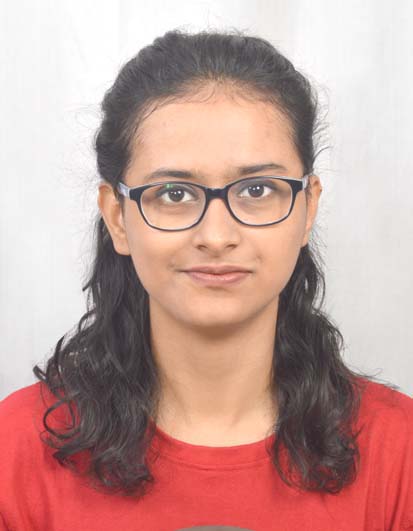
Ankita Sanyal is a doctoral candidate at Centre for West Asian Studies, Jawaharlal Nehru University, New Delhi. She worked as a summer intern at National Human Rights Commission, New Delhi in 2014 and participated in Global Initiative for Academic Networks, lecture on “Jerusalem and Abrahamic Faiths throughout the Ages” (November 2016); ICSSR-sponsored workshop on “Research Methodology Workshop in Social Sciences” (February 2019); and workshop on “Second Intensive Course on Women’s Studies in Islam and Iran” at the University of Religions and Denominations, Qom, Iran (August 2019). She currently has many publications and has presented papers in national and international conferences. She received certificate on completion of Level Two Persian Language course. Her area of interest includes minority studies, gender studies, cultural studies, education, peace and conflict studies.
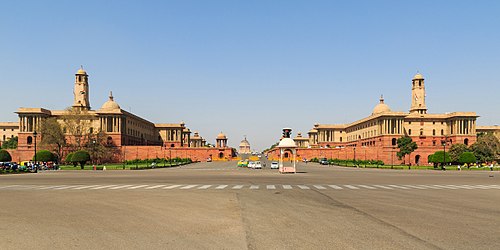
BILATERAL ISSUES BAHRAIN The CEO of LMRA highlights details on the new labour market reforms, .....
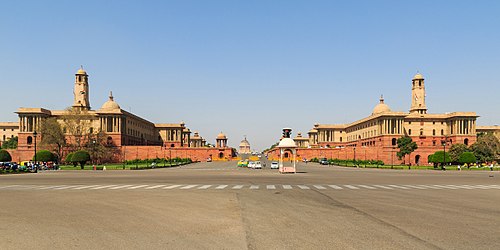
BILATERAL ISSUES EGYPT Raksha Mantri Shri Rajnath Singh to visit Egypt from September 19-20, 2.....
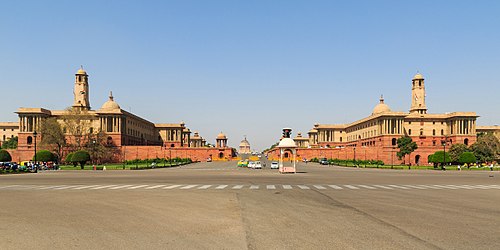
BILATERAL ISSUES IRAN Shri Sarbananda Sonowal visits Chabahar Port in Iran to Review work prog.....
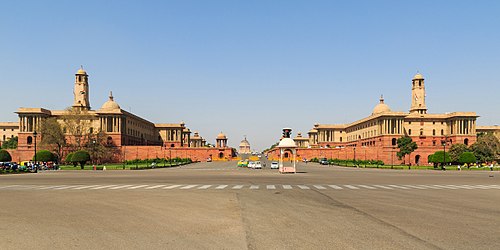
BILATERAL ISSUES BAHRAIN Deputy Chief of Naval Staff, India visits Kingdom of Bahrain, Manama,.....
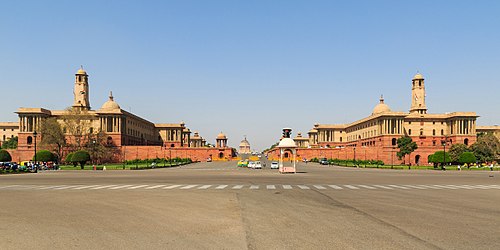
BILATERAL ISSUES BAHRAIN Buyer Seller Meet on Indian coffee between Indian exporters and Bahra.....
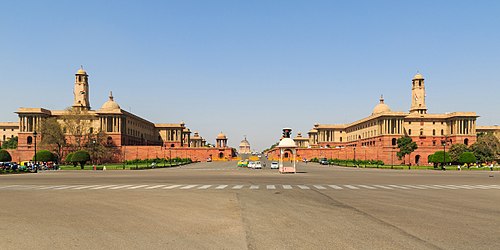
BILATERAL ISSUES BAHRAIN B2B meeting and Networking event between Bahraini & Indian IT com.....
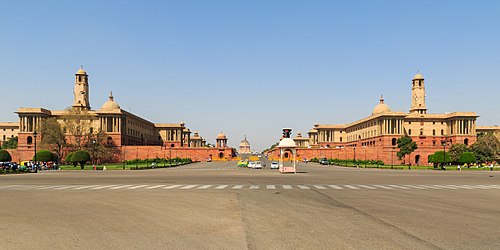
BILATERAL ISSUES OMAN Community Service Fortnight / Sewa Utsav’: ‘Celebration Thro.....
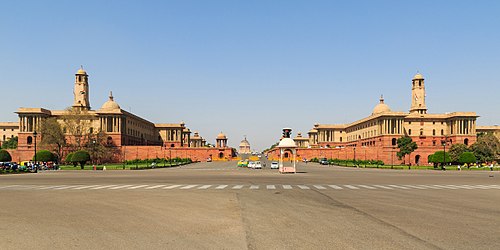
BILATERAL ISSUES BAHRAIN Virtual Buyer Seller Meet on agriculture and food products between In.....
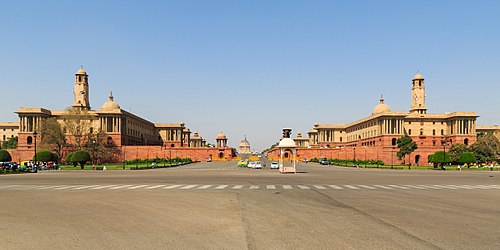
BILATERAL ISSUES BAHRAIN PM speaks on telephone with His Royal Highness Prince Salman bin Hama.....
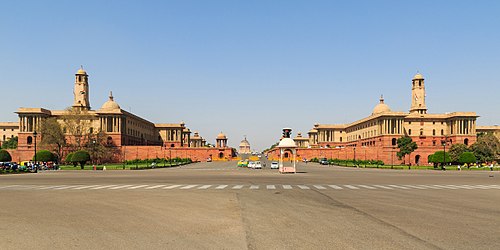
BILATERAL ISSUES ISRAEL Experts from India and Israel suggested expanding scope of India-Israe.....
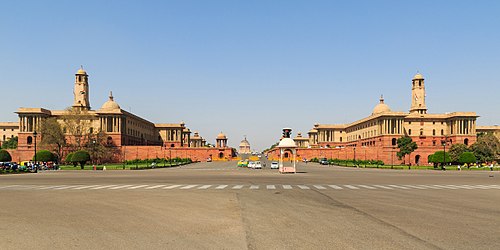
BILATERAL ISSUES BAHRAIN Press Release on virtual meeting between Minister for Education and S.....
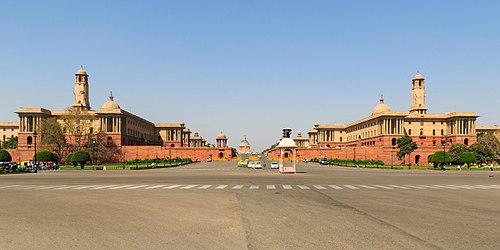
BILATERAL ISSUES BAHRAIN Ambassador’s visit to India Pavilion of Jewellery Arabia, Bahra.....
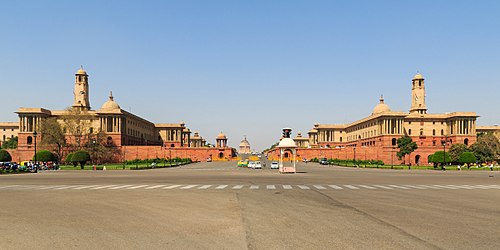
BILATERAL ISSUES ALGERIA Visit of Shri V. Muraleedharan, Minister of State for External Affair.....
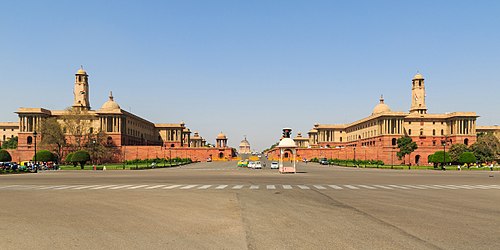
BILATERAL ISSUES ALGERIA INS TABAR undertook a bilateral Passage Exercise (PASSEX) with Algeri.....
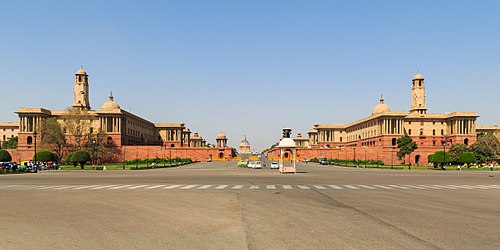
BILATERAL ISSUES BAHRAIN India expands mango export footprint to newer countries; GI certified.....
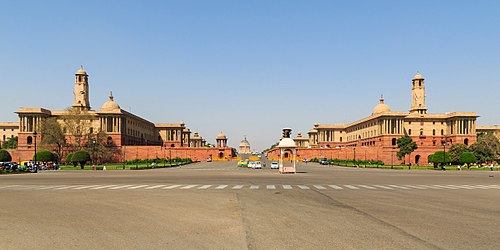
BILATERAL ISSUES ALGERIA APEDA in collaboration with Indian embassy organize virtual buyer sel.....
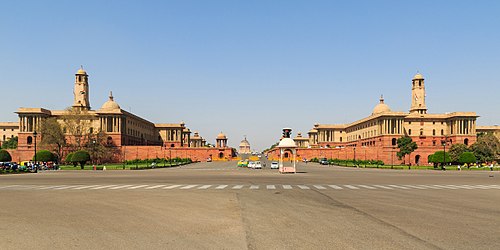
BILATERAL ISSUES EGYPT Procurement of 300,000 doses of Remdesivir from M/s EVA Pharma, Cairo, .....
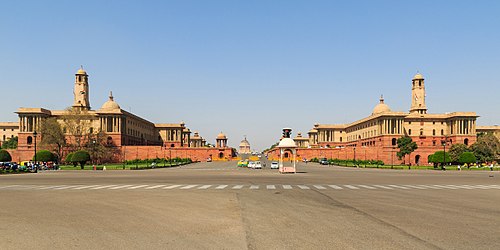
BILATERAL ISSUES BAHRAIN Third India-Bahrain High Joint Commission Meeting, New Delhi, 07 Apri.....
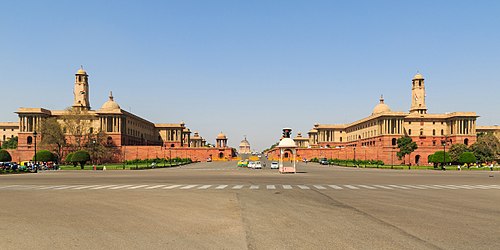
BILATERAL ISSUES BAHRAIN Indian Naval Ship Talwar’s Port Visit to Bahrain, Manama, 18 Ma.....
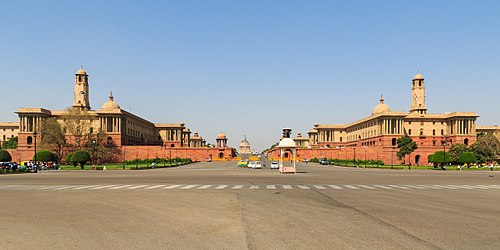
BILATERAL ISSUES IRAN Unstarred Question No.1475, Chabahar-Zaheden Railways Line, Lok Sabha, 1.....
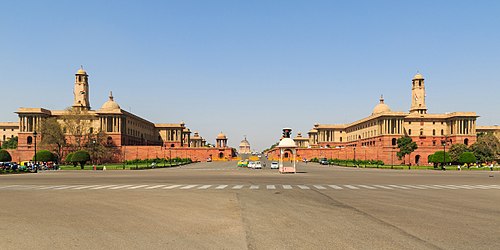
BILATERAL ISSUES IRAN Government of India strengthens cargo handling capacity of Chabahar Port.....
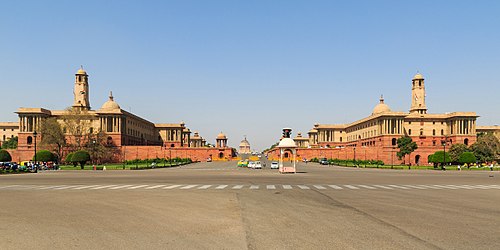
BILATERAL ISSUES BAHRAIN Warm greetings from Indian leadership on the occasion of Bahrain&rsqu.....
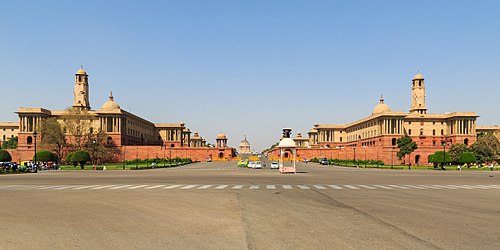
BILATERAL ISSUES BAHRAIN Prime Minister condoles the passing away of His Royal Highness Prince.....
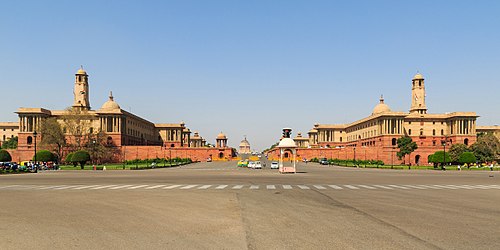
BILATERAL ISSUES BAHRAIN A B2B Webinar on Enhancing Opportunities in Pharmaceuticals and Alter.....
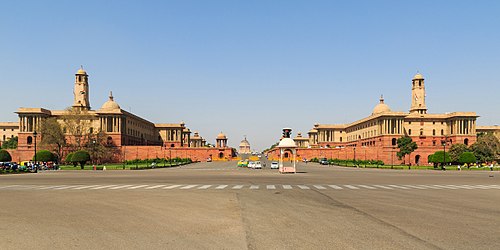
BILATERAL ISSUES IRAN Raksha Mantri Shri Rajnath Singh holds meeting with Iran's Minister .....
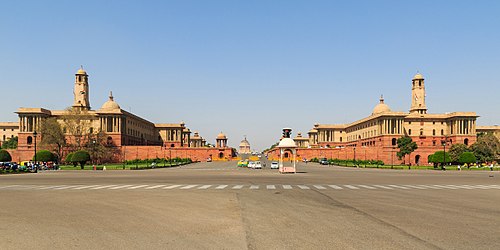
BILATERAL ISSUES ISRAEL Statement by the Official Spokesperson on the full normalisation of re.....
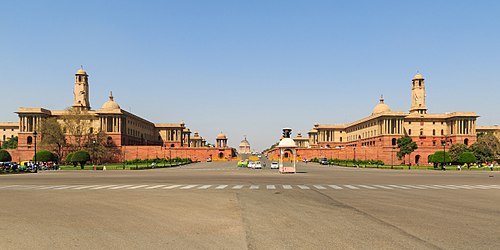
BILATERAL ISSUES ISRAEL Raksha Mantri Shri Rajnath Singh and Israeli Defence Minister telephon.....
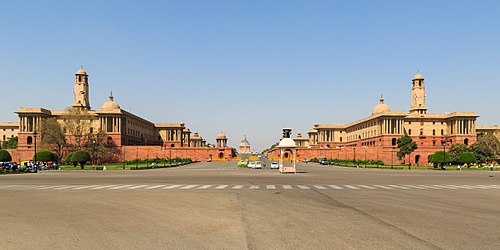
BILATERAL ISSUES IRAN Indian Navy Commences evacuation of citizens from Islamic Republic of Ir.....
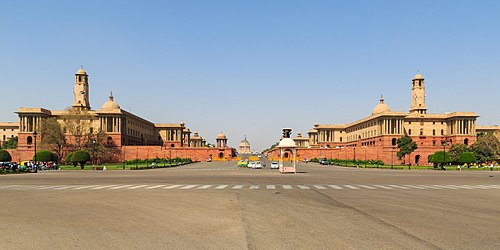
BILATERAL ISSUES EGYPT Phone call between Prime Minister Shri Narendra Modi and His Excellency.....
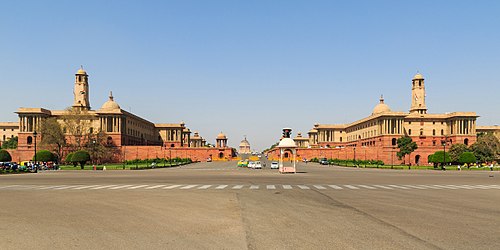
BILATERAL ISSUES BAHRAIN Telephone Conversation between PM and King of the Kingdom of Bahrain,.....
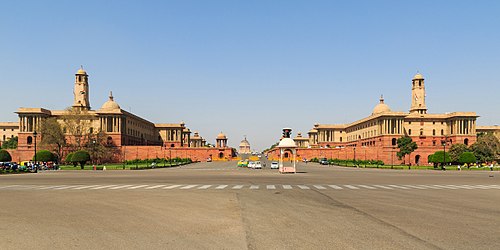
BILATERAL ISSUES IRAN IAF C-17 ‘Globemaster’ takes off for Iran, New Delhi, 9 Marc.....
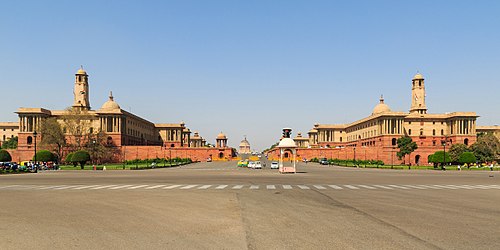
BILATERAL ISSUES IRAQ Travel Advisory for Indian Nationals travelling to Iraq, New Delhi, 19 F.....
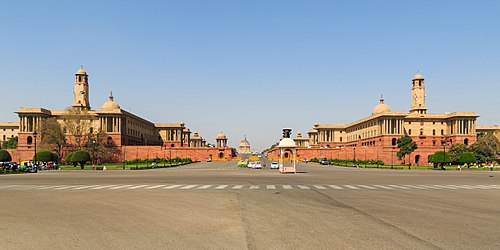
BILATERAL ISSUES EGYPT Photo exhibition on “Making of Indian Constitution and Life of Dr.....
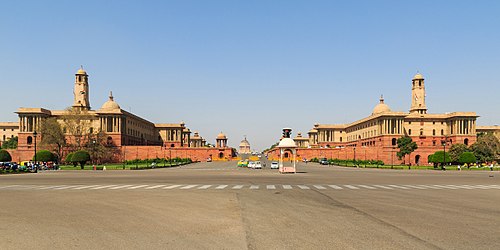
BILATERAL ISSUES EGYPT Prize Distribution Function of “Glimpses of India” Painting.....
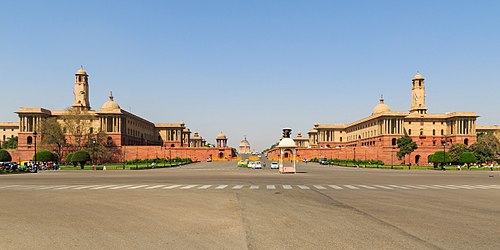
BILATERAL ISSUES EGYPT Consular Camp in Port Said on 22 November 2019, Cairo, 19 November 2019.....
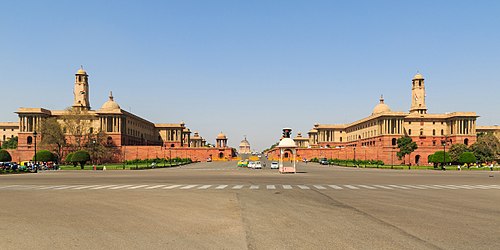
BILATERAL ISSUES JORDAN Meeting between Prime Minister and King of Jordan in Riyadh, Riyadh, 2.....
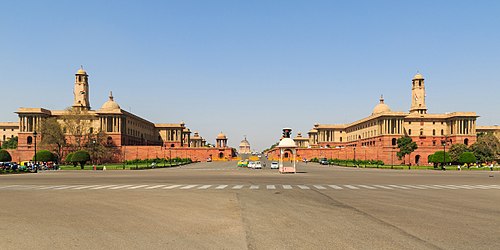
BILATERAL ISSUES a. IRAN Foreign Office Consultations between India and Iran, Tehran, 16 Septe.....
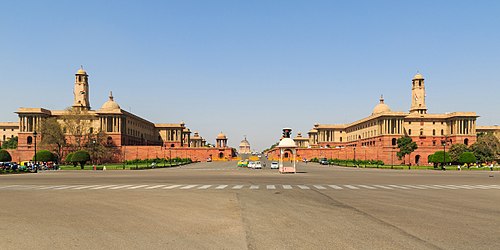
BILATERAL ISSUES a. BAHRAIN State Visits of Prime Minister to Bahrain (August 24-25, 2019), Ne.....
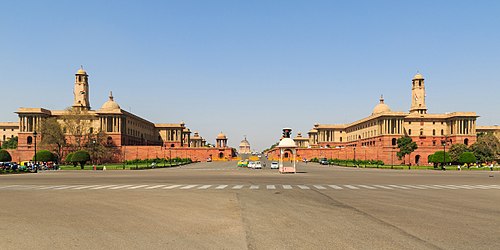
BILATERAL ISSUES BAHRAIN Cabinet approves Memorandum of Understanding between India and B.....
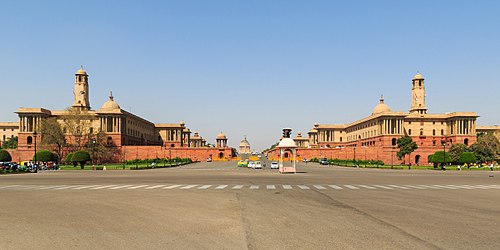
BILATERAL ISSUES IRAN UNSTARRED QUESTION No. 662 MPACT OF AMERICAN BAN ON CHABAHAR PORT, Rajya.....
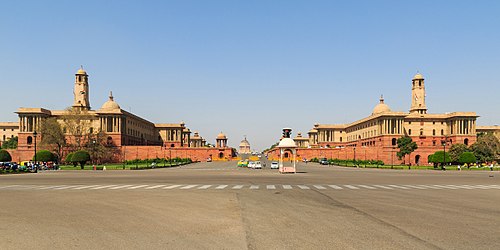
BILATERAL ISSUES IRAN 11th India Iran Joint Consular Committee Meeting (JCCM), New Delhi, 16 M.....
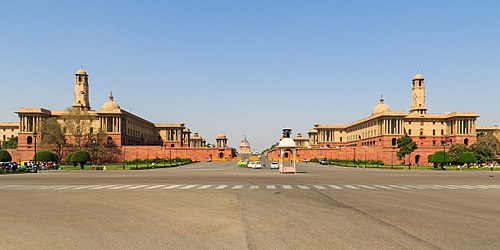
IRAN India extends relief assistance to Iran after recent floods, Tehran, 17 April 2019 In lin.....
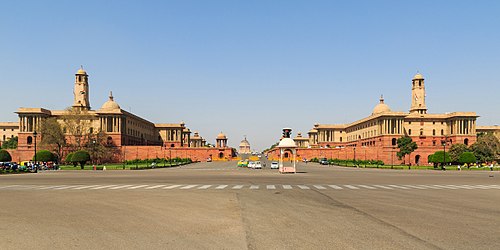
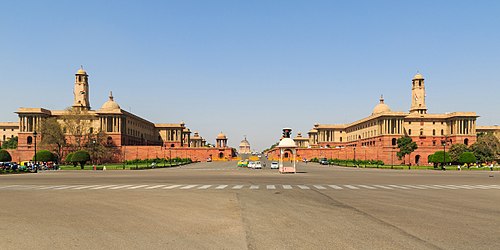
BILATERAL ISSUES EGYPT India condemns terrorist attacks in Egypt, New Delhi, 22 February 2019 .....
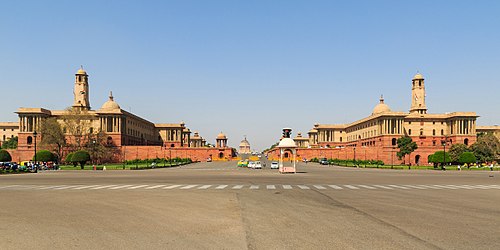
BILATERAL ISSUES ALGERIA Visit of Foreign Minister of Algeria to India (January 30-February 01.....
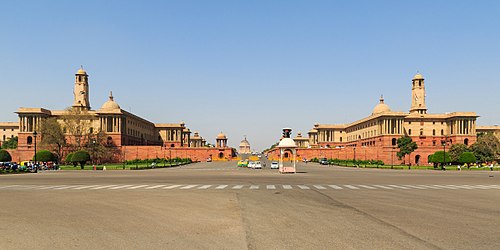
ALGERIA Cabinet approves Agreement between India and Algeria on Cooperation in the field of Space.....
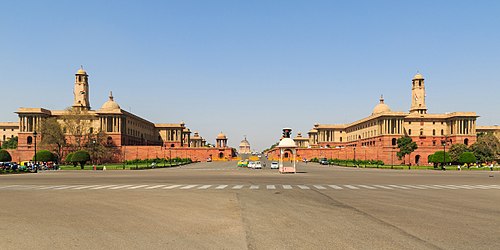
BILATERAL ISSUES IRAQ Jaipur Foot Camp in Karbala, Karbala, 21 November 2018 A 40-day Artif.....
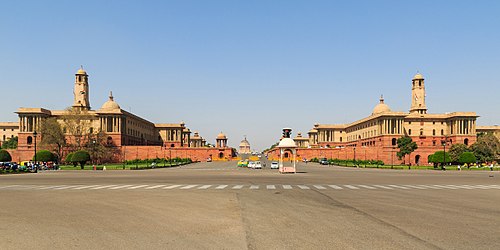
BILATERAL ISSUES KUWAIT Visit of External Affairs Minister to State of Qatar and State of Kuwa.....
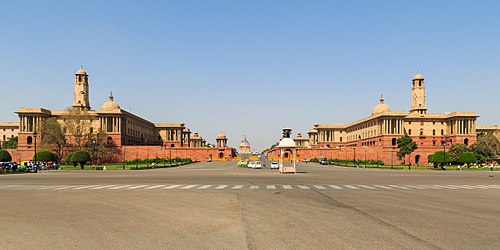
BILATERAL ISSUES EGYPT Cabinet approves MoU between India and Egypt on cooperation in the fiel.....
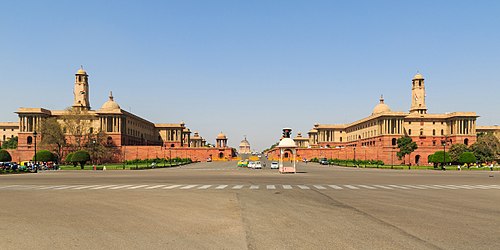
BILATERAL ISSUES BAHRAIN Question No. 3566, Unpaid Workers in Bahrain, Lok Sabha, New Delhi, 0.....
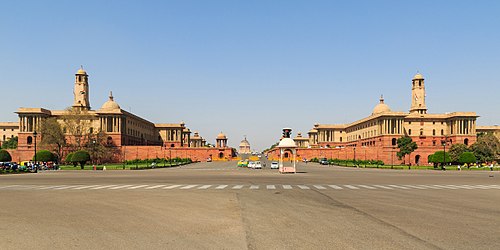
BILATERAL ISSUES BAHRAIN Visit of External Affairs Minister to Manama, Bahrain (July 14-15, 20.....
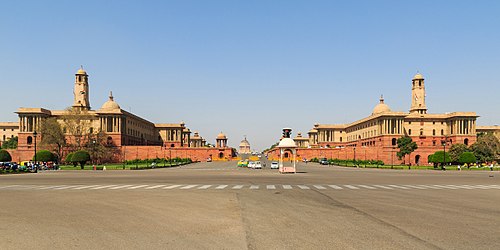
BILATERAL ISSUES BAHRAIN Cabinet approves MoU between India and Bahrain on cooperation in the .....
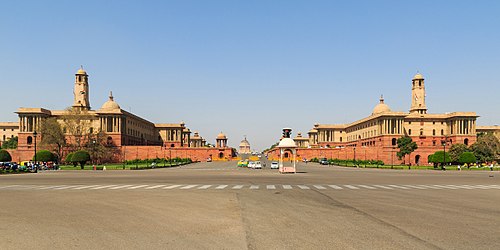
BILATERAL ISSUES IRAN External Affairs Minister’s meeting with Iranian Foreign Minister,.....
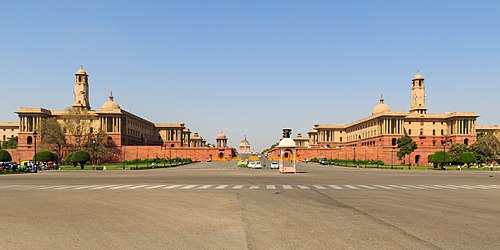
BILATERAL ISSUES IRAN Cabinet approves MoU between India and Iran on the establishment of an e.....
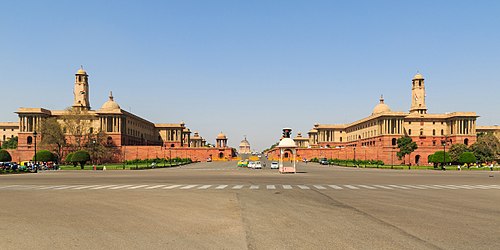
(Monthly Digest of Official Indian Statements on Middle East) BILATERAL ISSUES EGYPT Mr. Sa.....
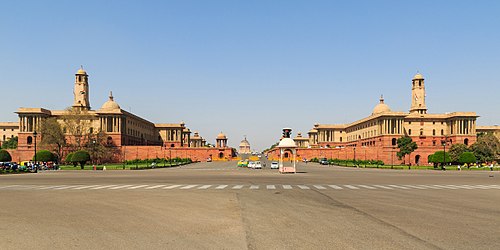
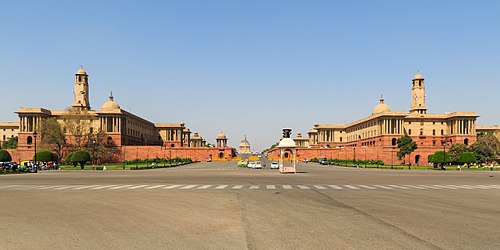
(Monthly Digest of Official Indian Statements on Middle East) BILATERAL ISSUES IRAN Launch .....
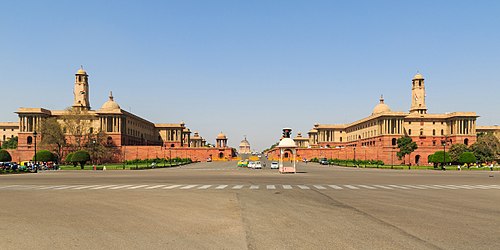
(Monthly Digest of Official Indian Statements on Middle East) BILATERAL ISSUES &.....
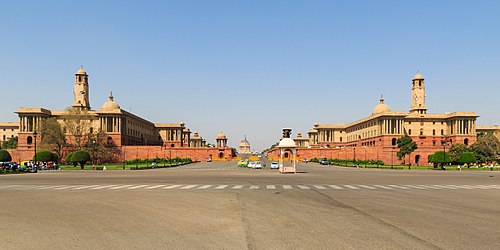
BILATERAL ISSUES a. EGYPT 1. H.E. Col. Rajyavardhan Singh Rathore, Minister of State for Youth.....
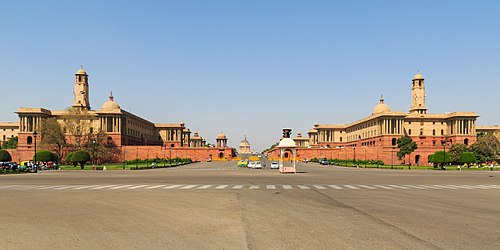
BILATERAL ISSUES a. IRAQ 1. India’s position on the Referendum held in the Kurdistan Reg.....
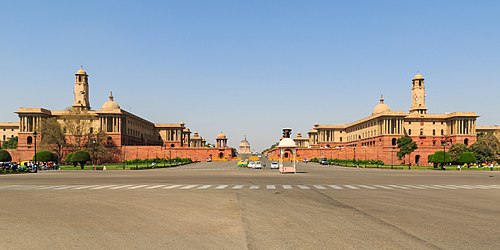
BILATERAL ISSUES IRAN 1. 6th Meeting of Joint Committee on Ports and Maritime Cooperation.....
